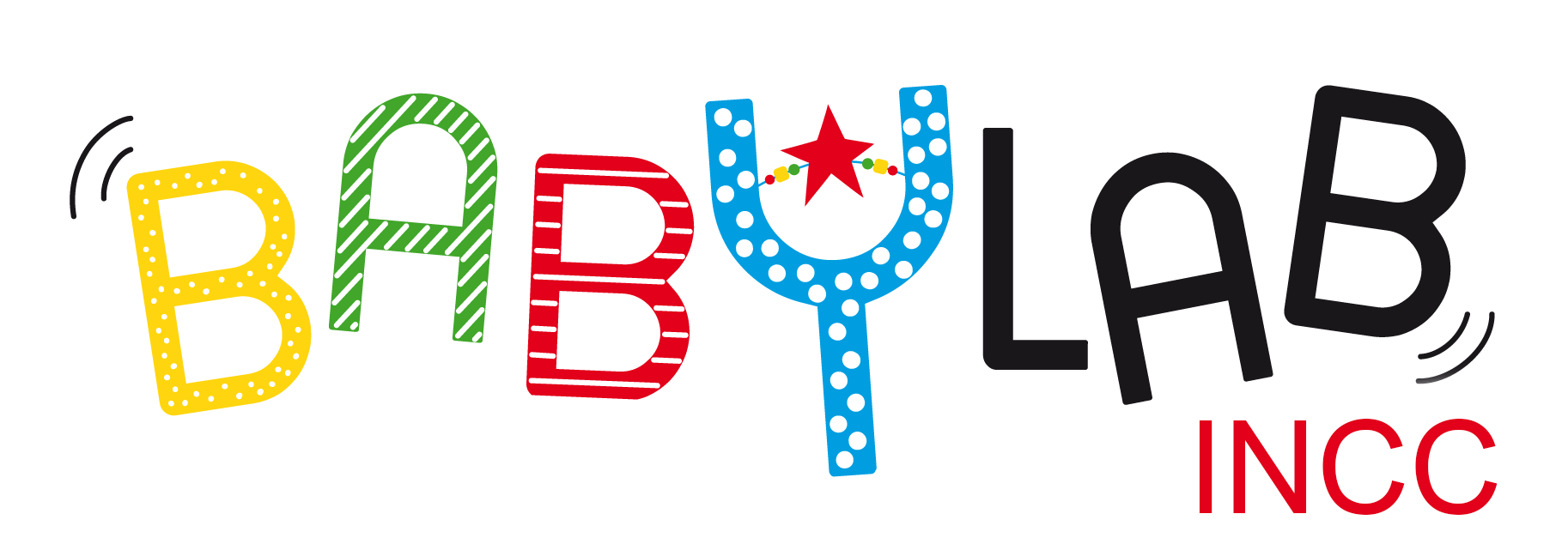Projects
Ongoing projects
Ticoala
Adaptation of a digital tool for assessing children’s language skills in nursery school.

Project team lead
Thierry Nazzi

Project team lead
Ranka Bijeljac-Babić
Prosodic grouping biases from birth to adulthood in monolingual speakers
This project studies how adults and young children use variations in intensity, duration and intonation to group syllables into word units.

Project team lead
Thierry Nazzi
Characterisation of the processing of acoustic cues and speech processing in noise in normal-hearing and hearing-impaired children with mild to moderate sensorineural hearing loss – SPINTAE
In this large-scale study, we aim to evaluate the processing abilities of different acoustic indices between 5 and 10 years of age in children without hearing problems and those with sensorineural hearing loss.

Project team lead
Laurianne Cabrera
Perception of sibilant consonants and understanding of plurals in hearing-impaired children – LaulauH
The objective is to understand to what extent a deficit in perception of certain sounds, such as “s” and “z”, when they are heard in background noise, can have an impact on oral comprehension of the plural in subject-verb agreement.

Project team lead
Laurianne Cabrera
Development of the auditory system and speech perception in infants- BabySIN
On the one hand, the cerebral processing of different acoustic variations of sounds is studied in 3-month-old infants using the electroencephalography technique. On the other hand, the ability to perceive speech in noise in these infants is measured using an observation technique.

Project team lead
Laurianne Cabrera
Proccesing phonological information while learning and recognizing words
It has been proposed that consonants carry more weight than vowels in lexical processing. Given the timing of acquisition observed in French, we have proposed that this consonant bias emerges in connection with phonological and (proto)lexical acquisition, a hypothesis we are currently testing.

Project team lead
Thierry Nazzi
Predicting language outcomes in typical development
We explore how elementary perception and learning mechanisms are linked to language acquisition. To this end, we test infants on different perception and learning mechanisms, at different stages of their development and up to 2-3 years of age.

Project team lead
Thierry Nazzi
Vicarious Social Touch perception in infants
The aim of this project is to investigate the physiological, behavioural and neural responses of infants to social-tactile interactions.

Project team lead
Olivier Mascaro

Project team lead
Louise Krisch
Language acquisition in atypical development
Knowing the mechanisms underlying typical language acquisition also makes it possible to explore whether or not these mechanisms are present in populations with atypical language acquisition and could be involved in their learning difficulties.

Project team lead
Thierry Nazzi
Origin of a numerical mental line
In adults, the existence of a mental number line (the representation of smaller quantities on the left and larger quantities on the right) has been demonstrated. But what about newborns?

Project team lead
Maria Dolores (Lola) de Hevia
Lexical-semantic development
Our studies aim to understand the neural mechanisms underlying this development in monolingual and bilingual children.

Project team lead
Pia Rämä
Acquisition of phonological biases in lexical processing
We aim to understand how different types of sounds, as well as their arrangements within the words of a language, influence the acquisition and lexical processing of French, German, and Franco-German bilingual speakers.

Project team lead
Thierry Nazzi
Past projects
What makes newborn walking: role of visual and somesthesic stimulation

Project team lead
Marianne Barbu- Roth
Spatial components of numerical and ordinal information: origins and development

Project team lead
Maria Dolores (Lola) de Hevia
ERC Advanced Grant FEEL and GoalRobots

Project team lead
Kevin O'Regan

Project team lead
Jacqueline Fagard
The efficient neural coding of sounds

Project team lead
Judith Gervain
Role of visual information in speech perception/production development

Project team lead
Thierry Nazzi

Project team lead
Arlette Streri
A general sense of quantity at birth

Project team lead
Maria Dolores (Lola) de Hevia
Neural processing of temporal modulations and computational modelling – Heardevcomp
The processing of acoustic information, such as variations in sound amplitude over time called “sound envelope”, is of crucial importance for speech perception in adults. We will seek to characterize the evolution of sound envelope processing during development in infants.

Project team lead
Laurianne Cabrera
FoundTrust: The neurocognitive bases of epistemic trust
The willingness to believe communicated information (or epistemic trust) plays a central role in human cognitive development. The aim of this project is to characterize its development in the first years of life.

Project team lead
Olivier Mascaro
Numbers in Action: Origins and Dévelopental course – NUMACT
This project studies the appearance, properties and development of the link between number and the performance of an action using behavioural, electrophysiological and electromyographic measurements in human newborns and infants.

Project team lead
Maria Dolores (Lola) de Hevia
Investigating cognitive processes underlying food learning in infancy -F.E.E.D your mind
The aim of the F.E.E.D. your mind project is to shed light on the cognitive processes underlying food learning in infancy and provide empirical bases to design such interventions

Project team lead
Camille Rioux
